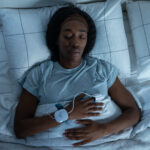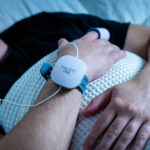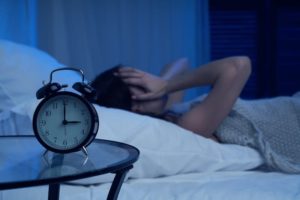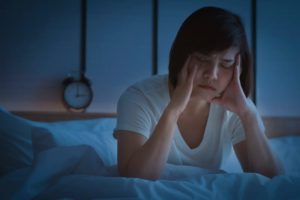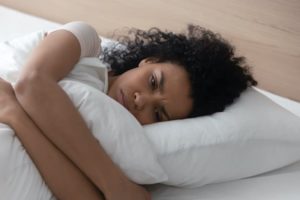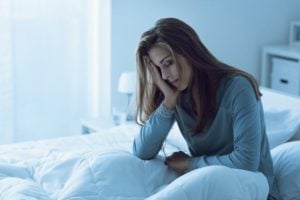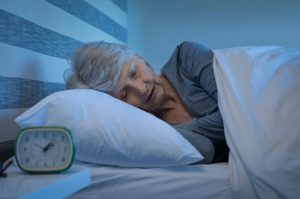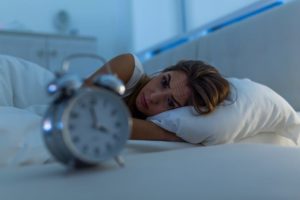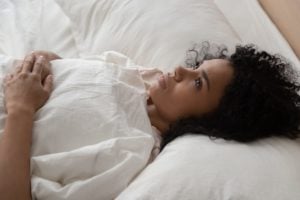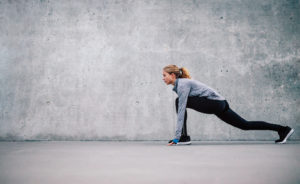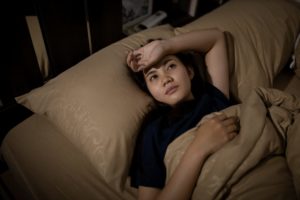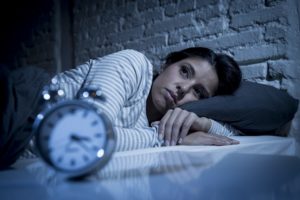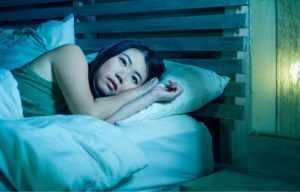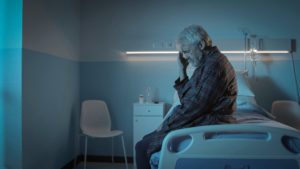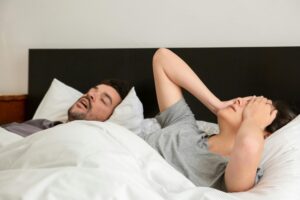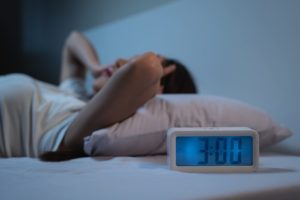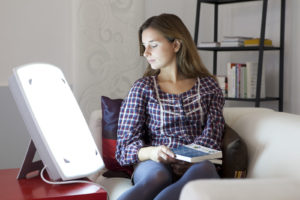When you buy through our links, we may earn a commission. Products or services may be offered by an affiliated entity. Learn more.
Acupuncture for Insomnia: Everything You Need to Know
Acupuncture is one of the world’s oldest medical practices and is used today to treat a variety of physical and mental health conditions. In recent years, acupuncture has become an increasingly popular treatment for insomnia as more people look for alternatives to traditional sleep medications.
Is Acupuncture an Effective Treatment for Insomnia?
Acupuncture can relieve insomnia symptoms, although the mechanisms behind its effects are not fully understood. For some people with insomnia, receiving regular acupuncture treatments for one to two months can:
- Improve sleep quality
- Reduce wakings in the night
- Increase total sleep time
- Decrease anxiety
- Alleviate pain
People whose insomnia is linked to depression, menopause, or chronic pain may be especially good candidates for acupuncture therapy.
Struggling to Stay Awake? Take an At-Home Sleep Test
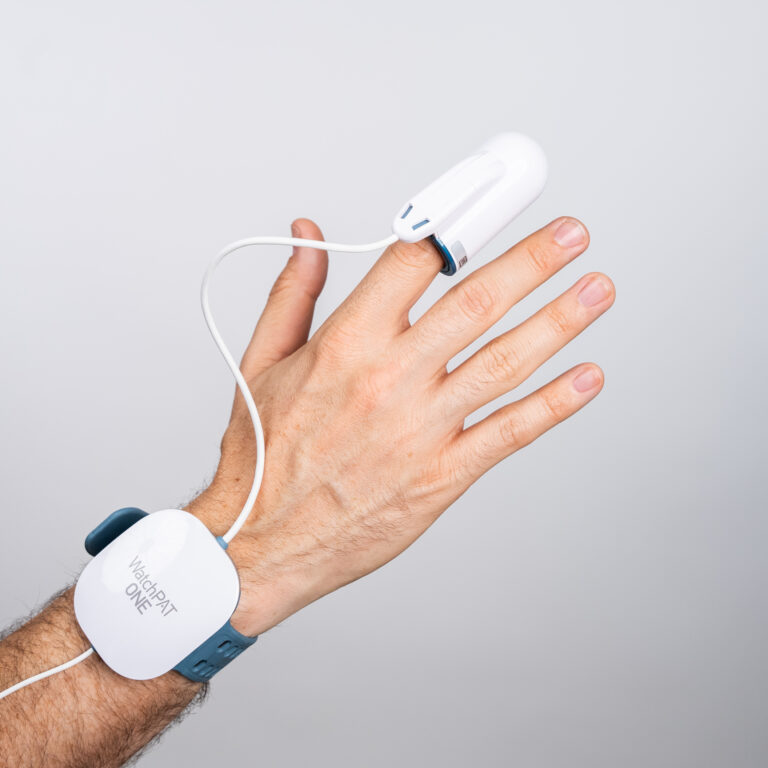
our partner at sleepdoctor.com
10% off Home Sleep Tests
Buy Now“Truly grateful for this home sleep test. Fair pricing and improved my sleep!”
Dawn G. – Verified Tester
How Acupuncture for Insomnia Works
In a typical acupuncture session, the practitioner will evaluate the patient and insert between five and 20 needles, leaving each in place for about 10 to 15 minutes. However, one patient with insomnia may receive an entirely different acupuncture treatment than another, and the same patient may receive different treatments from session to session.
This is because acupuncturists base their selection of acupoints on their assessment of how energy, or “qi,” is flowing through pathways called “meridians” within the body. Acupuncture is intended to resolve blockages, disruptions, and imbalances in energy flow, thereby addressing complaints such as pain or difficulty sleeping.
What to Know Before Trying Acupuncture
Acupuncture is generally considered safe, and major complications are very unlikely. As with any procedure involving needles and sharp instruments, acupuncture poses a risk of infection, skin irritation, and disease transmission. U.S. regulations require the use of sterile needles, which significantly reduces these risks. Bleeding and pain can also occur, but they are rare side effects of acupuncture.
People who are pregnant, have a bleeding disorder, or are on blood thinners should inform their acupuncturists about their conditions before receiving treatment. People with pacemakers should not receive electroacupuncture, and people who are immunocompromised should avoid acupuncture.
Additional Treatments for Insomnia
While acupuncture is a safe and drug-free treatment for insomnia, it is just one of several available approaches to reducing symptoms and improving sleep. People with insomnia should talk to their doctors or sleep specialists about which treatment—or combination of treatments—best suits their needs. These treatments include:
- Cognitive behavior therapy for insomnia (CBT-I)
- Sleep medications
- Homeopathic treatments, like melatonin, yoga, or aromatherapy
- Lifestyle changes
Our Best Tips for Better Sleep
Maintaining healthy sleep habits along with or after insomnia treatment is essential in helping prevent insomnia symptoms from returning. These include:
- Maintaining a consistent sleep schedule – even on weekends
- Having an optimal bedroom environment for sleep
- Getting at least 30 minutes of natural light each morning
- Avoiding caffeine after 2 p.m.
- Avoiding alcohol at least 4 hours before bed

Still have questions? Ask our community!
Join our Sleep Care Community — a trusted hub of sleep health professionals, product specialists, and people just like you. Whether you need expert sleep advice for your insomnia or you’re searching for the perfect mattress, we’ve got you covered. Get personalized guidance from the experts who know sleep best.
References
5 Sources
-
Yang, E. & Yeh, G. (2023 October). Overview of the clinical uses of acupuncture. In M. Aronson & K. Law (Ed.). UpToDate., Retrieved November 21, 2023, from
https://www.uptodate.com/contents/overview-of-the-clinical-uses-of-acupuncture -
Li, S., Wang, Z., Wu, H., Yue, H., Yin, P., Zhang, W., Lao, L., Mi, Y., & Xu, S. (2020). Electroacupuncture versus Sham Acupuncture for Perimenopausal Insomnia: A Randomized Controlled Clinical Trial. Nature and science of sleep, 12, 1201–1213.
https://pubmed.ncbi.nlm.nih.gov/33376432/ -
Yin, X., Gou, M., Xu, J., Dong, B., Yin, P., Masquelin, F., Wu, J., Lao, L., & Xu, S. (2017). Efficacy and safety of acupuncture treatment on primary insomnia: a randomized controlled trial. Sleep medicine, 37, 193–200.
https://pubmed.ncbi.nlm.nih.gov/28899535/ -
PDQ Integrative, Alternative, and Complementary Therapies Editorial Board. PDQ Acupuncture. National Cancer Institute., Retrieved November 21, 2023, from
https://www.cancer.gov/about-cancer/treatment/cam/hp/acupuncture-pdq -
Yin, X., Li, W., Liang, T., Lu, B., Yue, H., Li, S., Zhong, V. W., Zhang, W., Li, X., Zhou, S., Mi, Y., Wu, H., & Xu, S. (2022). Effect of Electroacupuncture on Insomnia in Patients With Depression: A Randomized Clinical Trial. JAMA network open, 5(7), e2220563.
https://pubmed.ncbi.nlm.nih.gov/35797047/


